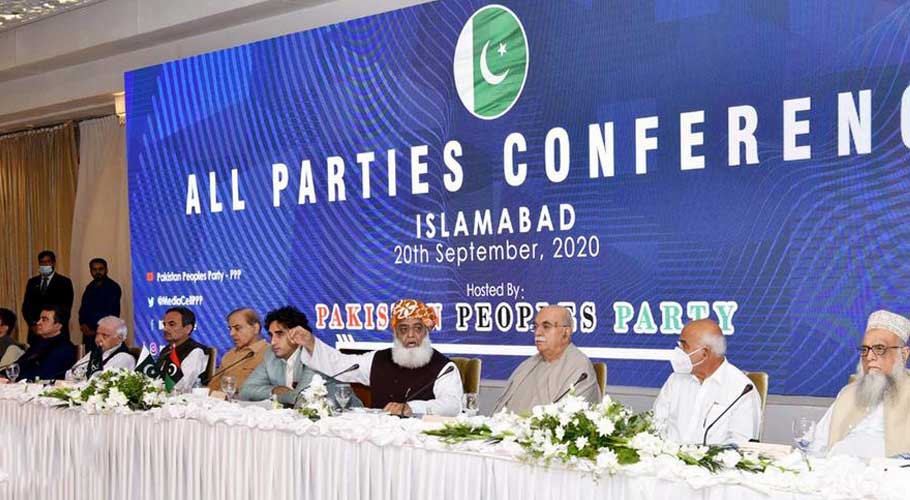Thousands of political workers arrived in the Pakistani city of Gujranwala on October 16 to kickstart an opposition effort to topple the government of Pakistan Tehreek-e-Insaaf (PIT) led by Prime Minister Imran Khan.
There is a lot of curiosity in the political circles about the opposition movement. However, some political analysts have suggested that just holding a rally will not make any difference to the government.
However, analysts are sceptical that the latest attempt by the opposition to form a united front against Khan will lead to much. A political analyst who served as a senior official during the 2018 polls, says the movement will likely involve more rhetoric than action. Let’s take an in-depth review of the opposition’s anti-government movement
Anti-government movements
The history of anti-government marches, some of which invited military intervention, is as old as Pakistan itself. Almost all the political and religious parties have used them as a tactic to pressure or topple governments in the past.
It is true that history repeats itself, 43 years ago today, Maulana Fazlur Rehman’s father, Mufti Mahmood, lead a fairly popular opposition a campaign against Zulfikar Ali Bhutto, after the latter’s minions allegedly rigged the 1977 elections.
Prominent politicians of that time were Asghar Khan, Nawabzada Nasrullah Khan, Maulana Shah Ahmad Noorani, Prof. Ghafoor Ahmad and others. Such political alliances have been a force in throwing out Pakistani military rulers in the past.
Pakistan Democratic Movement
In September, an eight-hour-long PPP-hosted multi-party conference (MPC) was held, which was also addressed by the deposed prime minister Nawaz Sharif and former president Asif Ali Zardari through video link.
The country’s major opposition parties announced the launching of a three-phased anti-government movement under an “action plan” with countrywide public meetings, protest demonstrations and rallies in December and a “decisive long march” towards Islamabad in January 2021, under the banner of – Pakistan Democratic Movement (PDM).
The opposition parties also demanded the resignation of Prime Minister Imran Khan over alleged election rigging and weak economy.
PTI government’s performance
Prime Minister Imran Khan was once Pakistan’s most popular man and believed to be a messiah, able to steer the country out of myriad problems ranging from economic mismanagement to corruption, terrorism, and a darkened international image.
However, his government’s performance during the past 26 months has disenchanted many of his diehard supporters in the media and his voters, particularly among the middle class and the youth.
In a telling example of his growing political challenges, Imran Khan advised PTI leaders to not be scared of losing their grip on power. “No one can topple our party’s government so long as we stand by our principles,” he said.
However, in a sign of internal turmoil, several senior PTI leaders have recently made public accusations against each other and exposed internal rivalries in media interviews.
What’s next?
Federal Minister for Railways Sheikh Rashid is always in the media because of his eloquent remarks. A few days earlier, while talking to the media he said that sit-ins cannot topple the government. “We had also staged a sit-in against the Nawaz Sharif’s government but nothing happened,” he added.
Sheikh Rashid was absolutely right and Prime Minister Imran Khan is not too worried about the opposition movement. Meanwhile, the opposition has also nothing to lose.
The opposition movement can only put the government in trouble, but cannot topple it easily. However, the government’s own mistakes and shortcomings can lead to the departure of the rulers.



































